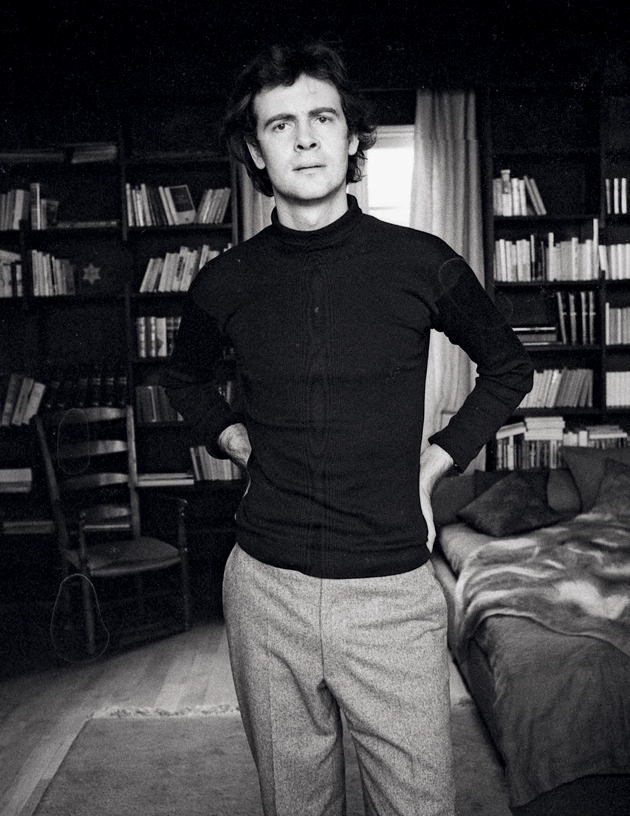A collaged dialogue between Anka Muhlstein’s essay on Modiano (translated by Anthony Shugaar) and Patrick Modiano’s 2014 Nobel Prize Speech (translated by James Hardiker)
*
MU: He was born in 1945 (for nearly twenty years, he claimed he was born in 1947, the birth year of his younger brother, who died at the age of ten) in Boulogne-Billancourt, just outside of Paris.
MO: Like everyone else born in 1945, I was a child of the war and more precisely, because I was born in Paris, a child who owed his birth to the Paris of the occupation.
MU: His mother managed to leave her native Flanders in June 1942 through the protection of a German officer; she had landed minor film roles back home, and in Paris she worked for a German-run film production company.
MO: I do not think I had ever been more acutely aware of how blind a novelist is when it comes to his own books, and how much more the readers know about what he has written than he does.
MU: Modiano’s father was born in France. He never declared his Jewish identity during the war, surviving under a false name and making a living through shady means, all of them connected to the black market.
MO: It was all a bad dream, with vague remorse for having been in some sense survivors. Later on, when their children asked them questions about that period and that Paris, their answers were evasive.
MU: He is a journalist’s nightmare [...] he gets tangled up in his own sentences in which the word occurring most frequently is bizarre . . .
MO: Calling to mind the way school lessons distinguish between the written and the oral, a novelist . . . is accustomed to keeping quiet, and if he wants to imbibe an atmosphere, he must blend in with the crowd.
MU: . . . he seems to be lost in a dense fog.
MO: He listens to conversations without appearing to, and if he steps in it is always in order to ask some discreet questions so as to improve his understanding of the women and men around him.
MU: . . . he gestures wildly with his long arms as if they were the sails of a windmill; and by the time he has finished he hasn’t explained much.
MO: His speech is hesitant because he is used to crossing out his words [...] when he takes the floor, he no longer has any means at his disposal to correct his stumbling speech.
MU: Modiano is no talker, he is a writer.
MO: The reader knows more about a book than the author himself.
MU: When he was fifteen, he became close to Raymond Queneau, a friend of his mother’s.
MO: A novelist can never be his own reader … he has only has a partial and confused impression of his books, like a painter creating a fresco on the ceiling, lying flat on a scaffold and working on the details, too close up, with no vision of the work as a whole.
MU: He enrolled at the university basically to avoid military service.
MO: You hope that the adults will read what you write. That way, they will have to listen to you without interrupting and they will jolly well know what it is you have on your chest.
MU: His father showed no interest in him and once Modiano reached legal age he broke off all relations with him.
MO: Faced with the silence of our parents we worked it all out as if we had lived it ourselves.
MU: Without a word to anyone, he wrote a novel and sent the manuscript to Queneau, who recommended it to Gallimard. In June 1967, Modiano learned that his book was accepted.
MO: The Paris of the occupation was always a kind of primordial darkness. Without it I would never have been born.
MU: Is it possible to be at once a Jew and an anti-Semite?
MO: A novelist is often a sleepwalker, so steeped is he in what he must write, and it is natural to worry when he crosses the road in case he is run over. Do not forget, though, the extreme precision of sleepwalkers who walk over roofs without ever falling off.
MU: His characters develop in a society where the most sordid arrangements bring together Jews on the run, secret collaborators, crooks, Gestapo agents, impostors, and victims.
MO: Ultimately, how far away exactly does a novelist remain? At the margins of life in order to describe it, because if you are immersed in it – in the action – the image you have of it is mixed up.
MU: This fog that envelops people and places explains a lack of depth and individuality in Modiano’s characters.
MO: Swans often appear in 19th century poetry – in Baudelaire or Mallarmé.
MU: The author, and therefore the reader, are left on the outside, giving rise to the feeling that one is always rereading the same book.
MO: And here is proof that a writer is indelibly marked with the date of his birth and by his time, even if he was not directly involved in political action, even if he gives the impression of being a recluse shut away in what people call his ‘ivory tower’.
MU: A thousand contradictory identities coexist inside him . . .
MO: It is only by actually reading his books that we gain intimacy with a writer.
MU: Proust is not only quoted at length and caricatured as a snobbish, high-society Jew, but more importantly shares a dual identity with Modiano, that of a half-Jew, both Jew and non-Jew, an identity that torments him.
MO: And also the lives of the thousands upon thousands of other, unknown, people passing by on the street or in the Métro passageways at rush hour.
